
A Conversation with Razor & Tie's Cliff Chenfeld & Craig Balsam
Mike Ragogna: The label Razor & Tie has had an extremely successful run and is practically the model for what to do right as an indie label. That success has gone beyond merely music CDs as you've branched out into DVDs, publishing, distribution, etc. Can you go into the story of how Razor & Tie began?
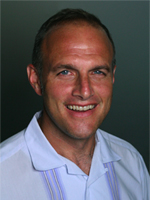
(photo credit: Dan Levine)
Cliff Chenfeld: Craig and I both had music backgrounds, working in record stores or being in bands. But then we both went off and became lawyers, and did legal work which really didn't have much to do with music. We thought we were going to grow up and become partners at law firms, but after doing that for a couple of years, we realized we really didn't enjoy practicing law as much as we enjoyed music. So, we began to think about ways we could maybe change our careers. We were getting into our late twenties and feeling that if we didn't make a move soon, we'd have a lot less flexibility.
So, we toyed with a number of things, including writing songs together, and that didn't really work. We then came upon this idea of putting out records from the seventies. This was in 1990, in a time when the seventies revival had not started in any way. The seventies were sort of a pariah decade at that point, and most of the music that was being sold on television was really sort of Slim Whitman or hits from the fifties. But we figured that our generation--who were becoming adults and responsible at that point--would probably be home more often, and more receptive to a television campaign, and starting to get nostalgic about the seventies. We also thought maybe some people who grew up in the seventies might start having some positions of power in pop culture and all of the sudden you might start seeing shows about it and movies about it.
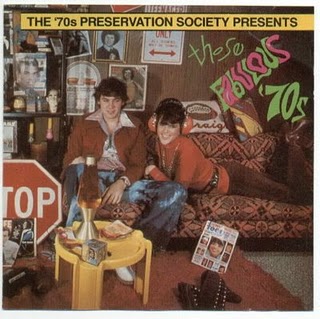
Fortunately, it turned out that we were right in a certain way, so we put our first record out, The Fabulous Seventies, in 1990, and we did a commercial for it called The '70s Preservation Society Presents: Those Fabulous '70s, and it did well. It did really well, and off we went. We worked out of my apartment for the first two years or so, and then my wife got pregnant with our first son and we got a tiny little office down here on Sullivan street. Now, twenty years later, we have two-and-a-half floors of the building. That's how it got started.
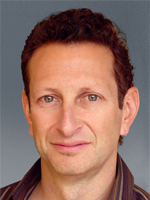
(photo credit: Dan Levine)
Craig Balsam: I met Cliff in law school sometime in the mid-eighties. We practiced law for a little while separately in New York City and decided that wasn't for us. We wanted to start a company that was connected to our passion, which was music, and in 1990, we opened our doors. We did a compilation of songs from the nineteen seventies and many people bought it. We advertised it on TV, and somehow, that started a company that is still around twenty years later. Today, we still do a lot of TV marketing of compilations, but we have a full-fledged record label; we have a music publishing company; we have a music management company; we have a pretty big and successful children's brand called Kidz Bop; and we're still surviving in an economic atmosphere that is much harder to survive in than it was in the past. So, it's very interesting to be in the music business these days.
MR: This eventually led to Razor & Tie's releasing Rhino-like reissues and projects by new artists.
CC: Well, the first thing we did was compilation albums when we saw that there was a real opportunity to begin licensing titles. This was in the middle of the whole CD revolution, and there were lots of albums that major labels had decided they didn't necessarily want to put out on CD. So, we did a significant amount of licensing of those albums and put, literally, hundreds of titles out. There was just this gap between the major labels feeling they needed to sell a ton of these to reissue them and us saying, "There are lots of strong niche markets."
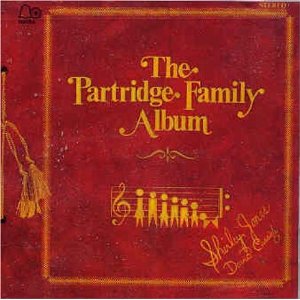
We got everything from Bobby Womack to The Partridge Family, and from Arthur Alexander to Bobby Bare. I mean, we were in every genre, and we got stuff that sold a lot. We had tremendous success getting the rights to Michael Stanley's music which, at the time, no one outside of Ohio had really thought about. But his music had never been available on CD and there was a big audience for it. So, we just had a great run on that, and that probably ran for us for about 12 years. That was a big part of our business.
As more and more titles were ultimately released or compiled on CD, that market became smaller and that part of our business became smaller, just a supply and demand thing. But it was great because we were allowed to get into a lot of music that we loved, and it was a business scale that worked very well for us. At the time, if we sold twenty thousand copies of something we could make that work, and sometimes, we'd sell one hundred or two hundred and we'd make that work.
Then, at some point, we said, "Let's start putting some new music out," and that first new music was basically music from more veteran artists who we were big fans of but who had gone out of their label deal. So, we always approached this relatively moderately, and we just decided that the thing we wanted to do was, "Let's not start from scratch." We made deals with Graham Parker and Marshall Crenshaw to put new music out from them, and simultaneously, we signed out first new artist, which was Dar Williams. That sort of started our new music initiative.
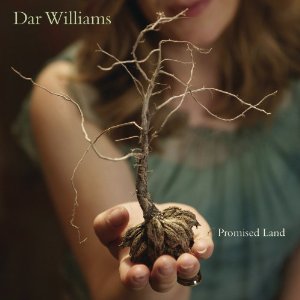
MR: Dar Williams is one of the great success stories of Razor & Tie. How did you break her as an act?
CC: Well, Dar is incredibly talented. So as much as we did right with her, it's ultimately about the artist, and she is an incredible songwriter, singer, and performer. But look, it was the mid-nineties and she was one of the first that tapped into a group of people who she communicated with directly via the Internet. She had sort of a built-in fan base and I think, working with her, we did a very good job of communicating with that fan base. At the same time, working with her, we struck a nice balance between trying to stay true to what her music was, and at the same time, pushing her to be a little bit more commercial and to do some things that she might not have done otherwise. So, we have had a great run with her.
Her first five records each sold more than one hundred thousand copies, she's got a great touring career, and people have a great deal of respect for her. It's something that we're very proud of, in the sense that we were able to work with somebody who is that talented and really be able to help her in her career and, at the same time, maintain a really good relationship with her for fifteen years. She's still on our label, and we're coming out with a collection of new recordings and some of her classic songs on a two-disc set. We're really excited about that.
MR: Wow, fifteen years. Will "February" be on the release?
CB: Yes. Dar's the artist that has been with us the longest, and we're going to finally put out--for lack of a better phrase--a Greatest Hits record with her in the Fall, and she is recording eight or nine of her better known songs, recording them again in an interesting way, doing some duets that'll add to the release, so we're excited about that with her.
MR: Will the duets be part of a bonus disc?
CB: It'll be part of the release. We're not quite sure how we're going to configure it yet, but everyone who buys one will get these songs that have been newly-recorded by Dar.
MR: With the exception of through telemarketing, it seems that there's nowhere to sell a ton of CDs anymore. However, there's a strong market for CDs among certain demos, and it seems like we're killing it off a bit prematurely, right?
CC: Look, there's no question that more people are buying via digital than before, and more people are stealing than before. I mean, you can't deny that. On the other hand, there are still a significant number of people who like to buy music on CD, who like to buy music physically. You can see that when Susan Boyle sold three million copies last year, you can see that with Michael Jackson, you can see that with Justin Bieber. People still buy a lot of CD's.
I think there are a number of different factors that are causing that market to decline faster than consumer behavior would necessarily dictate such as the trouble record stores have had, and the fact that many of the companies involved need to demonstrate that they are thinking with a very forward perspective. To the extent that they're pouring effort, time, and money into selling CDs, they look like they're not focusing on the future. I think that there are different ways of doing this. You can absolutely be as forward looking as you need to be, but not leave a lot of money on the table, and that's certainly what we're trying to do. We have artists that sell ninety percent digital, and artists that sell ninety percent physical, and we want to be able to accommodate both of those.
The problem in the music business right now is that people are giving up on those folks that sell ninety percent physical. How can you give up? I think Susan Boyle's sales were ninety-four, ninety-five percent physical, right? And that's in a market where a lot of people don't have CDs near them. So, there's clearly still a demand, and we're selling a lot CDs on television. We had a compilation that came out recently called The Edge that was the #4 record in the country. It sold over fifty-thousand copies just on television.
MR: What's the reason for that?
CC: I think people are buying CDs on television partly because they can't find them in stores. They're seeing them on television, and where five years ago, they might have said, "I'm not going to do this," because they would have known that they could get that record somewhere near them. Now, they're seeing things on television and thinking, "Wow, I don't know if I can get that in the store. I'd better order it here." So, we're actually selling more CDs on television than we have in a couple years. So, I just think it's a mistake, there are ways of doing both of these things, and we're going to try. And look, we've got an artist, Dave Barnes, who has a song that's a hit and that's going to sell a ton of downloads and a ton of tracks and that's great.
MR: So, the death of the CD still might be a little further down the pike?
CC: There's always a risk when you talk about there still being a CD market that you'll look like the guy that was still clinging to the stagecoach when the trains came. But it's actually not the case because this is still a very viable market, and more importantly, it's consistent with the way a lot of consumers behave. So, if a lot of consumers are behaving this way, then you want to try to accommodate them and most companies aren't, at least we're trying to.
MR: And as a business, Razor & Tie has branched out in many ways.
CB: Well, I think what we're trying to do is just be a viable music marketing company. We're still very connected to music, we love music, and people still love music. A lot of this is just about how people are going to engage with music and how they're going to pay for it. So, what we've done is, rather than just sell recorded music--which we did for years and years--we're doing other things that tap into revenue streams that the music industry presents and allows us to work with artists and music projects on a number of different levels.
MR: Definitely, you have to be forward thinking to survive.
CB: And that's really our solution to the change in the music environment. So, if we have project with an artist, maybe we'll sign them to our music publishing company and that makes it easier for people who want to license that music to license it, because they can get it from one place, from us. And that makes a lot of sense for us, as well.
MR: A lot of Razor & Tie's success also can be attributed to your bravely taking on unusual projects. Way back when, you took on country parody before it was popular with Cledus T. Judd. But you also took on other unusual projects.
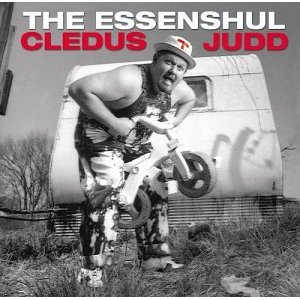
CB: This is true. We've always taken on projects that other, larger companies would not think could be as successful as they actually were. We try to find things that we think there's a real audience for, and then we try to back it up with the marketing that kind of connects to that audience.
MR: Over the years, you've especially done an incredible job with your TV marketing. In fact, you really were the television marketing force for over a decade.
CC: And we still are.
MR: And you still are.
CC: No, I'm serious, we still are. We still sell way more music than anyone else does on television, we're getting hired for some of the biggest campaigns in the country, and yeah, that still is happening here.
MR: You branched out into DVDs a while back, and you've had some hits with notable rap releases.
CC: Darren's Dance Grooves.
MR: Yes, and the one you made on...
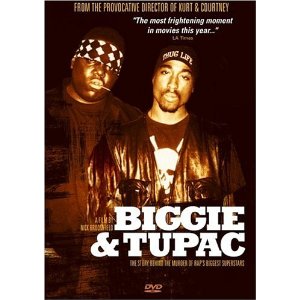
CC: ...oh, Biggie & Tupac.
MR: Yeah. That DVD was huge.

CC: Yeah, and we're about to launch a big campaign with US magazine. We just did a venture with US for a fitness series, and the first one that's going to come out is the lovely Kendra (Willkinson).
MR: Right, I interviewed the trainer, Nicky Hollander, for HuffPost.
CC: Well, that's our video, and it's going to come out next month. And it's got nothing, really, to do with the music business, but it all has to do with our marketing and production chops. So, that's another example, this series of fitness videos. Kendra's the first one, and I think it's going to be really successful.
MR: Who are some of the newer acts on the roster?
CB: We signed a band called The Summer Set out of Arizona, they're really great songwriters. They're young kids in their teens and early twenties, and they put on a really amazing show, a lot of energy. They've been building and developing fans all over the country. They were on the AP tour, and on the Warp tour all summer long. They couldn't be better people to work with, they're very enthusiastic, they're very talented, they love what they do, they work every day, and it's really fun to work with them. We just signed a band called, The Graduate who comes out of Maryland, and they're a really interesting rock band. They're another band that's been touring around. They've developed a very interesting base, and they're working on a record over the next year that I think that's going to be very successful.
MR: Since you have Sony distribution, you've been able to set up deals with labels and artists that aren't necessarily signed to Razor & Tie.
CB: That's correct. All in all, A&R--which is "artist and repertoire," the way record labels find bands--has always been left on the shoulders of one or two people in each music company, and it's our view that that's not really the right way to go. We have a great A&R staff here, and they bring us a lot of music to sell and release, but we also look to other people to do that. One of the ways is by distributing smaller record labels whose owners have a real vision for what kind of music they want to bring to the marketplace. Then, when we have success together, we try to ratchet it up and venture the project and put some more bucks behind it to help it build and grow.
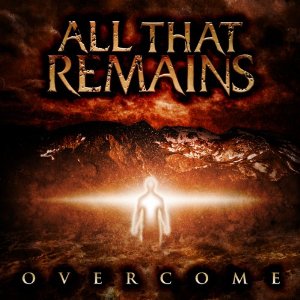
CC: We've got relationships with all kinds of people now. We have distribution relationships that allowed us to amp up certain projects. For instance, we did a deal with a label called Prosthetic which had a band called All That Remains. We distributed them, and we were able to upstream them. We've now put out three records and each have sold two-hundred fifty thousand copies. They had the expertise in that kind of music, and we had the distribution and marketing capacity to really help them, so it was a win-win for everybody. And, we've been doing more and more of that. At the same time, we've become a bit more aggressive in terms of signing new artists like Dave Barnes and others who've had success.
MR: Plus you're releasing cast albums with Ghostlight Records.
CC: Right, that's another one of those distributive relationships we have which is great. We've got the cast recordings of In The Heights, Hair, Legally Blonde, and Next to Normal.
MR: You've created other kinds of relationships through your publishing company.
CC: We have a publishing company now that's doing really well, and we've signed artists like Matisyahu and Drive-By Truckers.
MR: And there's your media buying division.
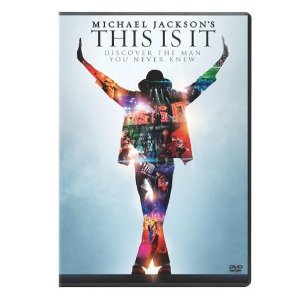
CC: Our media buying company now buys a lot of media in addition to just for ourselves. We handled all the TV buying for the Michael Jackson This Is It soundtrack, the Sade album Soldier Of Love, and they were both #1s. We're doing a lot more of those, so it's another big area that we're in. Basically, what we've found is that the major labels are really having a challenge in terms of adapting to this market, and most indie labels are niche-y or not particularly well-financed. We're in a very good place, I think, because we're this independent label that has major label distribution, is always on the charts, has a fully integrated marketing staff with physical, digital, publicity, radio, and everything else. We have the oomph to sell a lot of records, and at the same time, give the attention and personal focus that a small label can. And we don't need to sell a million copies of something for it to be successful. So, we're in a good place right now, I think, unless of course the whole music business blows up, you know?
MR: What's Razor & Tie's business model for the future?
CC: Well, I think our model for the future is associating with people who are, perhaps, more connected in a particular, passionate area of music. Prosthetic was that, Ghostlight was that. These guys are on the ground and engaged fully in those genres and in those scenes. We have the resources, and the expertise, and the know-how to help them bring that to a bigger audience, so when they have something that's bigger, we can all benefit together. On some level, it's almost an A&R play. It's a distribution and a service thing, but when it really works, it's All That Remains, and we have a big artist together.
MR: Do you have any particularly unusual business relationships set-up?
CC: We just did a new kind of deal with a really interesting company called The Artery Foundation. The Artery Foundation is a management company out of Sacramento, and they manage a lot of really successful, younger, harder bands that are not really very well-known to the mainstream, but have passionate followings, do great live business and sell a lot of records. So, they've managed The Devil Wears Prada, for instance, and the guy who runs this thing, Eric Rushing--who had always signed his artists to other labels--decided that he wanted to have his own label. This was actually brought to our attention by my son, Dylann, who, at the time, was fifteen. He said to me, "Eric Rushing has this company, The Artery Foundation, and they really want to have a record label. Razor & Tie should be his record label." I said, "Well, I don't really know much about those guys. Why don't you call them?" Dylann called them, and basically ended up having a great relation with Eric that led us to having a deal with him where we're now his label. So, it's not a distribution deal, it's a venture. Eric's basically finding these bands--many that he manages--and they come out through Artery/Razor & Tie, the joint venture.
MR: So Eric Rushing, basically, oversees his acts?
CC: Eric signs his bands. His brand means a significant amount there, he puts them on tours, he kind of gets them started, and then we help him out. It's our venture together. That's an opportunity to tap into something that, I think, we would otherwise have a more difficult time tapping into. It's another sort of win-win, and a way for us to leverage our expertise and our resources with somebody who is a legend in his world. In music, that's changing more and more, what's going on here is connecting to passionate but perhaps smaller scenes. People like Eric become more important, and the fact that we can be flexible enough to do Eric's bands at the same time as we do the cast recording to Hair is really great, and that's what we want to do. We don't want to be so narrow that all we do is singer-songwriter or heavy music, or this or that. It doesn't make sense.
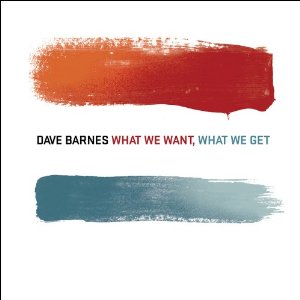
MR: Dave Barnes is also a Razor & Tie success story.
CB: We just released his album a few weeks ago and we're having a lot of success with him. He's a great singer-songwriter out of Nashville, he has a very strong touring base. His career is going great, and this album is doing really well.
MR: And he's benefited form still another Razor & Tie marketing approach.
CC: We're trying to succeed on so many different levels without being stupid. I know that's kind of a nutty thing to say, but he's a good example. Dave Barnes is great, and he delivered his new record that debuted at #60 on Billboard's album chart. There is a song on it called "God Gave Me You" which is not a religious song, but just a song about being thankful for his relationship and all those kinds of things.
We decided we'd start it in Christian radio, and it went Top 5 on Christian CHR, was the fastest rising song on the Christian AC chart, and we're going to cross it over to the mainstream AC over the summer. It's a great example of how flexible, or eclectic, or schizophrenic we are. He sang the song in a wedding scene on All My Children, and this song has the potential to be one of those standards that people play at sentimental events. It's getting an amazing reaction. That's a great development for us, and we can do that without having to wait for all the gatekeepers. We put it up online, did some pre-sale stuff, and sent it over to Christian radio. They loved it, and off we went. So, there's ways of doing that now that I'm not sure would have been so easy to do twenty years ago. I think nearly every record label on the Christian chart right now is on a label that sort of has their foot in the Christian world though, obviously, we don't. But, the song is successful because of the professional people working for us, and we all made it work. I'm very excited about that.
MR: Because of the success you've had with Dave Barnes, might you now be thinking, "Hmm, what else can we do in the Christian market?"
CB: Well, we've signed some rock bands who have a relationship with the Christian market. They're not Christian acts per se, but they have a relationship there, and our publishing company has signed a few artists that write spiritual and other music. Most of them are out of Nashville, and they're very successful writers. So, it's something that we're already involved in a little bit, and probably will be more.
CC: That's one thing I think, honestly, we've learned from having success with Darren's Dance Grooves and then doing four things right after it that weren't successful which gave back a lot of the money. The Barnes song is a great song, I understand why it's successful. It's allowed us to learn a lot about that market and understand it a little bit more, but I'm not all of a sudden assuming that we're now experts on this thing in any way. We're learning about it and happy about it, but I also think we just have a song that really reacts, that we're flexible and capable of figuring out how to bring that to the right people.
MR: At some point, most labels abandoned marketing to older demographics. Does Razor and Tie court that older demo?
CB: Sure. I mean, we have always signed a broad range of artists from young to old, different kinds of audiences. Cliff and I really just look for the music to be good and for the artist to have some fan base that we can sell and market their music to. So, we're kind of agnostic, in a way, about what kind of artists we choose to sign. We just kind of have to like it, and that's it.
CC: Sure, we embrace them all the time. Look, we put Neil Sedaka's record out two years ago and did great. We did Joan Baez's last studio record that got nominated for a Grammy and sold fifty-thousand copies. We co-produced a terrific documentary on Joan that we did in conjunction with PBS. And there are a lot of good ways of connecting to those folks. They're very responsive, they're actively on Amazon, they're listening to NPR, some of them are watching QVC, and they respond to TV spots. That audience is actually an exciting one for us, and we're interested in continuing to connect to established artists who have done great.
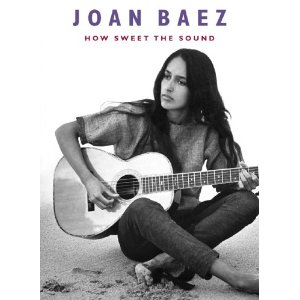
CB: Yeah, Cliff and I executive produced the documentary that was out on Joan last year on the American Masters series. We're very supportive of Joan and she's a great artist.
MR: When Joan gave me an interview for HuffPost, I was amazed at how intelligent she was, like off-the-chart smart.
CB: That must have been fun, right? She's an interesting person.
MR: And now for the opposite demo. You sold millions of "Monster" collections, and you launched yet another series phenomenon with Kidz Bop.
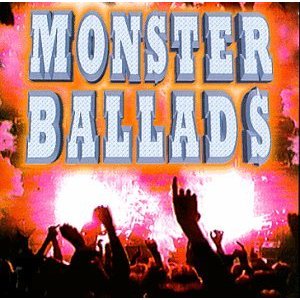
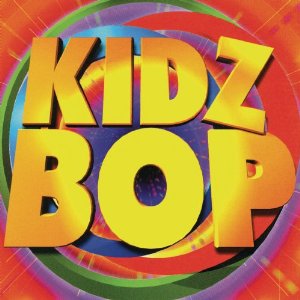
CC: We were able to create Kidz Bop for a relatively small amount of money, but we put a lot of work behind it. We started Kidz Bop in 2001 by just making a CD, running spots on television, getting orders, and off we went. Since then, we've gone on to sell, I think, 13 million CDs. It's become the biggest kid's music brand in the country, and we're now ramping that up with a Wii game that's coming out in the fall. There's a national talent show--sort of a Kidz Bop meets American Idol--that's going to launch this summer.
MR: And Kidz Bop's success led to the creation of your children's label, right?
CC: That expertise in the kid's world has allowed us to have other kid's opportunities, from signing Laurie Berkner--who is the biggest kid's artist in the country--to releasing the soundtrack for the first Chipmunks movie record, and we're about to do some other kid's things. So, the kid's market has been a very good one for us, and we're going to keep working on that. Those people still buy CDs.
MR: What's your prediction for Razor & Tie's next ten years?
CC: Oh my God, are you kidding me? Ten years?
MR: Yup, ten years.
CC: Oy, gevalt
MR: Five years?
CC: ...
MR: A year?
CB: A year, I can tell you. Hopefully, our business will still be going as strong after thirty years as it is after twenty. But hopefully, I'll also be able to take in some sun and do a little fishing at the same time, we'll see. In the next couple of years, I think it's actually a time of opportunity for us. We're one of the larger independently owned music companies in terms of markets here in the United States, and I think that gives us a lot of opportunity to sign talent that is no longer interested in being in the really large record companies. It's already starting to happen, we're about to sign an artist--I can't tell you who it is--who is a really great talent, and is one of those artists that I think will be with us for a long time, coming here as a result of wanting to be at a place that's vibrant and exciting and independently owned.
CC: I want us to continue to be a very diversified entertainment company that is very responsive to the changes in the marketplace, and at the same time, is successful on a larger scale, but can still do projects that Craig and I care about that are not necessarily going to be huge sellers. So, I know that's kind of mushy, but ultimately, that's kind of where we're headed. I'd like to be the most successful independently owned music company in the country, and continue to maintain a vibe that is a little bit more personal, that allows us to do the things we want to do, but at the same time, is ambitious and growth-oriented...open to changes and new ideas. However the music business evolves, I want us to be situated in a place where we're very successful.
MR: What is your advice for artists and bands starting careers in music right now?
CB: Well, interestingly, I often am talking to up-and-coming artists either through people I know or through people I know who know other people that want advice. So, I actually have a lot of opportunity to talk to younger artists that are trying to develop. What I tell them is to be willing to sacrifice, work hard, play, tour, and develop a fan base on their own, and not look to a record label or a publisher to bankroll their success. They've got to figure out their own way, and with all the tools that they have now to reach an audience--the distribution tools that they have now with the internet and satellite radio and internet radio and all these other opportunities--they really can start to develop a fan base for their music before they latch on to a company to help them market it. I think that, ultimately, labels like ours can be very, very helpful to those artists. But I think they have to figure out what it is and who it is that they are going to play to and develop as fans. From there, it really lends a lot of help and insight when they start a relationship with a label.
CC: If I had to say one thing, honestly, I would say that in this day and age, it's more important to understand the connection between music and community. The value of a younger person in the business today really is about doing the kind of things we've been talking about--having access and an understanding of a scene that others may not have, and being able to live that scene and help it become a successful, potentially lucrative area of the business. The way the world is today with the Internet, there are so many different, smaller, yet significant scenes than when you and I were kids. I think that kind of flattens the world a bit, and it gives a younger person an opportunity to be really meaningful. I've got to tell you, Mike, my son Dylan has done great stuff for us. He's sixteen now, a sophomore in high school, and he's signed bands to us. He set up this Artery deal. I don't think Dylan could have done that in 1978 because he would not have had access to all that information. So, that's what Dylan does with us, and he is very much a 2010 kid who can work.
There's so much clutter out there, so somebody who can cut through that and really have an understanding of a scene, music, what makes the community of people who support that music go, and how to communicate to those people...well, all that is very important. I think it's tailor-made for younger people to be meaningful. At the same time, it's not just about recorded music anymore. Obviously, that scene, that whole environment can be much broader, from record label, to manager, to touring, to digital, to whatever it might be. You just have to look at it from the way the music business is in 2010.
(transcribed by Ryan Gaffney)
